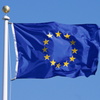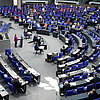Antimicrobial Resistance
Antibiotics are used in human and veterinary medicine to treat bacterial infections. Modern medicine is no longer even imaginable without them and they play a crucial role in various areas, such as with transplants or in the care of premature babies.
Through indiscriminate use of antibiotics – which, for instance, includes when used against infections that are caused by viruses, where antibiotics are ineffective, or in the wrong dosage – and an inadequate adherence to hygiene measures in human and veterinary medicine as well as in agriculture, antibiotic resistance can develop and spread. Commerce and travel also contribute towards this spread. Antibiotic resistance leads to infections that had until recently been readily treatable, but can now only be treated with great difficulty or possibly even not at all.
The number of bacterial pathogens that have become less susceptible or even fully resistant to antibiotics is increasing all over the world and becoming a major hurdle when treating patients.
Multinational efforts
In Germany, the measures to combat antibiotic resistance are brought together as part of the “DART 2030” German Antibiotic Resistance Strategy. In the long term, the fight against antibiotic resistance can only succeed with international cross-sectoral cooperation in human and veterinary medicine, agriculture and the environment.
In May 2015, the World Health Assembly therefore passed a global action plan on antimicrobial resistance. It emphasises the 'One Health' approach, in other words: the need for a common approach within human and veterinary medicine as well as agriculture and the environmental sector to combat antibiotic resistance. All member states were urged to pass national action plans that follow the One Health approach.
Surveillance is an important instrument in detecting changes and processes as well as trends, taking targeted measures and measuring their effects. To improve the data available, WHO has set up the Global Antimicrobial Resistance and Use Surveillance System (GLASS).
The "Global Database for Tracking Antimicrobial Resistance (AMR) Country Self- Assessment Survey (TrACSS)” enables tracking of country progress in implementing measures against AMR in areas such as surveillance, appropriate use of antibiotics or infection prevention.
Germany regularly addresses the topic of antibiotic resistance when presiding over the G7 and G20.
That is why antibiotic resistance was also on the agenda of the G7 Health Ministers and during Germany’s G7 Presidency in 2022. In preparation for the G7 Health Minister Summit in May 2022 in Berlin and together with the Institute for Health Metrics and Evaluation (IHME), the Robert Koch Institute (RKI) created a brochure on the disease burden of antimicrobial resistance in the G7 countries. With the adoption of the Communiqué, the G7 Health Ministers made far-reaching commitments to set up integrated surveillance systems, promote antimicrobial stewardship, enhance infection prevention and control, combat sepsis as well as conduct research and development.
































